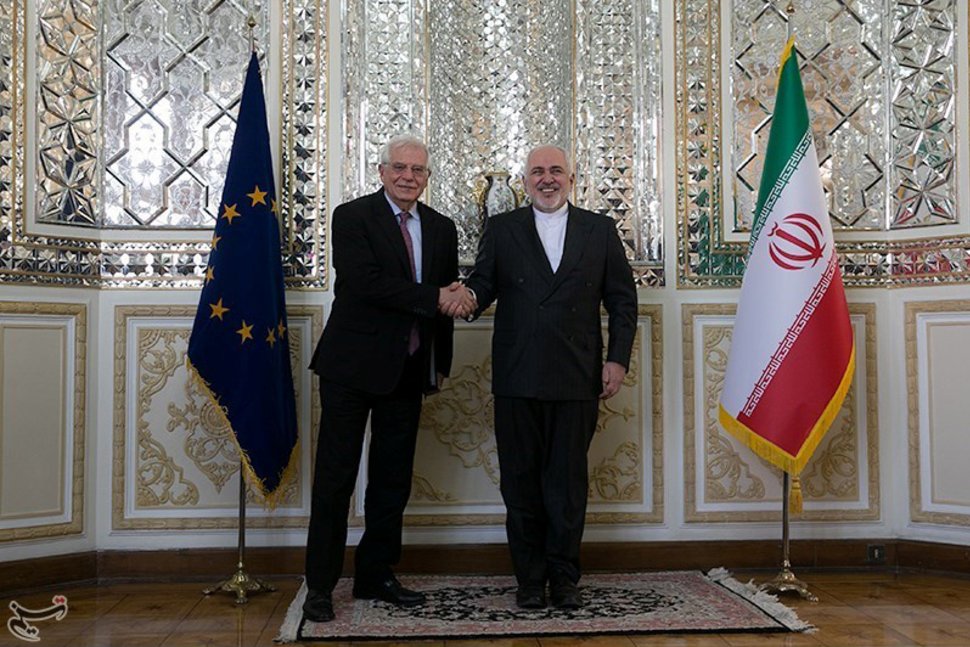February 28, 2020
There is effectively no investigation into the shooting down of a Ukrainian airliner by Iran because Iran is just sitting on its hands and holding onto the airplane’s black boxes, refusing to send them to any other country for analysis.
Ukraine is angry with Iran not just for its lack of cooperation, but also for offering compensation to the families of the Ukrainian dead that the Ukrainian government considers ungenerous.
Canada, which was home to a majority of the dead, is fed up with Iran’s refusal to give up the black boxes and is making its disgust with the Islamic Republic clear on an almost daily basis.
Iranian Foreign Minister Mohammad-Javad Zarif has said Iran will not hand over the black boxes to anyone. He has admitted that Iran cannot read the contents, but says it is the responsibility of the rest of the world to send Iran the equipment needed to read the contents of the black boxes.
That has never been done before. The boxes are routinely sent to countries with the needed equipment, which usually means France for accidents in the Eastern Hemisphere and the United States for accidents in the Western Hemisphere. Most of the black boxes are made in France and the US.
The Iranian argument strikes many as odd. Iran has already admitted to shooting down the passenger plane, so the black boxes are not going to yield any significant information. The cockpit recorder will show how the cockpit crew reacted when hit by the missiles. The data recorded will provide details on the damage suffered from each of the missiles. But none of that will change the key conclusion—that Iran shot down a passenger aircraft.
However, the public argument now going on for almost two months does paint the Islamic Republic as uncooperative and hostile to the rest of the world. The regime cannot gain from that. It can only lose standing internationally. So, many people are asking why the Islamic Republic persists in being so contrary.
Ukraine is especially miffed at Iran’s offer of compensation. Ukrainian President Volodymyr Zelensky said Iran had offered to pay $80,000 to each family (not for each individual killed). When the United States shot down an Iran Air passenger jet in 1988, it offered to pay $250,000 for each wage-earner who was killed and $100,000 for each dependent who died. Given inflation since then, that is the equivalent in 2020 dollars of $550,000 for each wage-earner and $220,000 for each dependent—or about 10 times as much as Iran is offering for a deceased husband and wife.
Zelensky said of Iran’s offer, “It is too small. We will press for a larger amount.”
Someone in Ukraine got hold of a recording of an exchange between the airport control tower and the pilot of an Aseman Airlines plane that was preparing to land when the Ukrainian plane was shot out of the sky. The pilot asks the tower, “Is this an active area? There’s lights like a missile. Is there anything?”
The tower responds: “Nothing has been reported to us. What’s the light like?”
The pilot says, “It’s the light of a missile.”
The tower then tries to reach the Ukrainian flight but gets no answer.
Many media outlets said this was important because it showed that Iran knew it had shot down the plane almost immediately. Actually, however, the recording was not important. The head of Iran’s air defenses had long before said he was notified soon after the plane was shot down, so the recording doesn’t change the time line.
But the Islamic Republic was incensed that the transcript had been released in Ukraine and swiftly announced that it was halting all cooperation with Ukraine, further cementing its image of being uncooperative. After a few days, Iran reversed itself and said it would resume cooperation with Ukraine. But the damage had been done and many concluded Iran had something to cover up.
In Ottawa, Canadian Transport Minister Marc Garneau said, “The world is looking.”
Meanwhile, the six countries other than Iran that had citizens on the plane—Canada, Ukraine, Sweden, Afghanistan, Germany and Britain—have taken the unusual step of forming a committee to press for a full investigation. The first thing they did on February 15 was to insist that Iran was obligated to respond to all unanswered questions





















